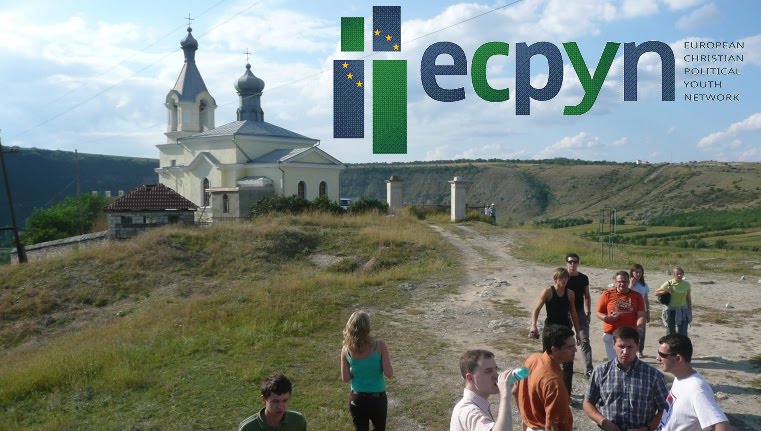A few weeks before yesterday's elections for the Lower House of the Dutch Parliament (officially the Second Chamber of the General Estates) it had seemed as if the race for becoming the largest party was between the rightwing liberal VVD and the left wing populist Socialist Party. In those final weeks the leader of the Labour party (PvdA) performed better than the leader of the Socialist Party in televised debates though. Thus it soon became appearant that the race would be between VVD and PvdA and the media of course focussed on this as well.
The focus on the race between VVD and PvdA naturally made it much harder for smaller parties to compete. All of the gains the Socialist Party had made in the opinion polls were lost to the PvdA and the Greens that were already dwindeling in the polls because of a change in leadership, support for budget cuts and internal conflicts, also lost many votes to the PvdA. On the other side many who had previously voted for the centre right CDA or the right wing populist PVV decided to vote for the rightwing liberal VVD in order to prevent the PvdA from becoming the largest party and the left gaining the initiative.
This competition between VVD and PvdA has paradoxically led to the fact that because these parties have grown at the expense of possible coalition partners, they will probably have to form a government together. In the results as far as they are now known (a 100% of the votes is in, but the exact effects of combined lists still have to be calculated), the VVD has 41 seats out of 150 and the PvdA 39. This means that the two largest parties would have a majority in the Lower House together, but these two do not have a majority in the Upper House, which is elected indirectly (ie by members of the 12 Provincial Estates). In order to arrive at a majority in both Houses of Parliament VVD and PvdA might look for one or two other coalition partners. Their success in finding the right third or forth partner may also determine the succes of the entire formation process, as it will be difficult to reconcile the electoral platforms of VVD and PvdA. Likely candidates to join a coalition are the centre right CDA which has recently attempted to style itself more centrist and the social-liberal D66. Whereas a VVD-PvdA-CDA coalition would have a majority in both Houses, a VVD-PvdA-D66 coalition would require a forth party in order to reach a majority in the Upper House.
It is no yet known whether the CDA will be willing to join the government coalition as it was further decimated after an already poor result in the 2010 national elections. Once a party that participated in almost every government and was often the largest party, the CDA has declined due to internal conflicts over participation in the minority government with the VVD that was supported in parliament by the right wing populist PVV. CDA fell from 21 to 13 seats.
The ECPM member parties Christian Union and the Reformed Party (SGP) have done rather well considering the circumstances. The SGP even gained a seat and grew from 2 to 3 seats. In the 2010 elections the SGP had already been close to a third seat and it is quite an accomplishment to have gained it now, amidst the media flurry that focussed mainly on the two largest parties. The Christian Union remained stable at 5 seats, although the exit poll had indicated a loss of 1 seat.
Even though we can rejoice in the fact that the SGP gained a seat and the Christian Union remained stable, the loss of the CDA is very unfortunate. The CDA is a natural ally for CU and SGP in issues such as freedom of religion, freedom of education, freedom of association and in issues related to the family and medical ethics. Even if the CDA is less outspoken on these issues, they were often able to withhold a government from more radical steps by participating in government. Whether the CDA will participate in the next government and what will remain of their influence now they have been reduced numerically remains to be seen.
In any case the process of forming a government may take a long time. Some combinations of parties that seem unlikely at this point may still surface. In any case the eight ECPM member party representatives in the Dutch parliament will undoubtedly do the their utmost to maximize their influence. Please pray for them!
The full result is as follows:
VVD (right wing liberals) - 41
PvdA (social democrats) - 39
PVV (right wing populists) - 15
SP (left wing populists) - 15
CDA (liberal-conservatives) - 13
D66 (social-liberals) - 12
CU (christian democrats) - 5
GL (greens) - 3
SGP (christian conservatives) - 3
PvdD (animal rights) - 2
50+ (pensioners' interests) - 2
Welcome to the ECPYN blogspot!
This blogspot was started by the participants of the 5th International Summer School of ECPYN in Chisinau, Moldova, August 24-29 2008.
You can also visit our official website at www.ecpyn.org, follow ECPYN on Twitter or join our facebook group. Opinions expressed on this blog do not necessarily represent official ECPYN positions.
Thursday, September 13, 2012
Dutch election results make formation of government difficult
Subscribe to:
Comments (Atom)




